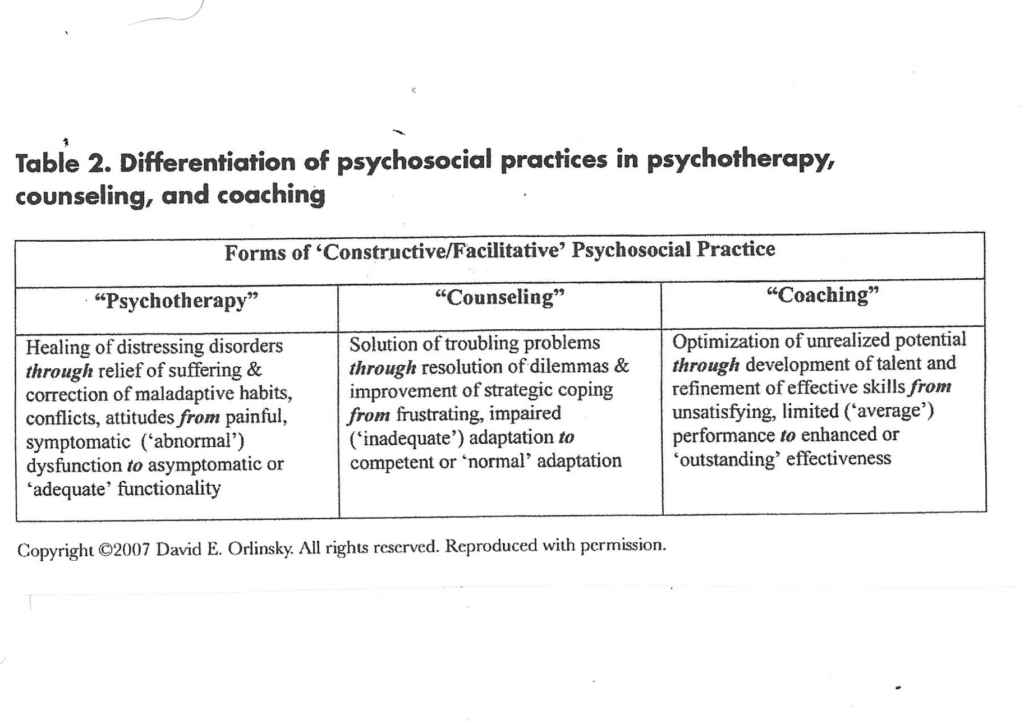
Neurosocial Dynamics: Toward a Unique and Cohesive Discipline for Organizational Coaching
Clients come to coaches because they want help in effecting changes. These are not physical changes, for which we might go to a hairdresser or cosmetic surgeon. Coaches fit into the general category of “psychosocial change agents.” Other nonphysical change agents, such as salespeople, want us to alter our buying behavior, and lawyers or accountants advise us how to do things differently, but coaches are not in the “commercial/ expert” category like these change agents. There are change agents such as negotiators, propagandists, and police or military interrogators who use “coercive/manipulative” means to induce change, also unlike coaches. Coaches, suggests Orlinsky, are “constructive/ facilitative” change agents like therapists, counselors, social workers, clergy, and political reformers.
According to Orlinsky’s survey of coaching literature as compared with his knowledge of psychotherapy and counseling, coaching is a psychosocial change intervention that optimizes “unrealized potential through development of talent & refinement of effective skills from unsatisfying, limited (‘average’) performance to enhanced or ‘outstanding’ effectiveness” (Orlinsky, 2007, p. 5). This is a definition that tells us what coaches do. However, questions remain about the extent of overlap among these three professions. In practice, many therapists and counselors take a developmental approach and seek to draw out and draw on client’s strengths. Many coaches have to navigate “pathological” elements in their clients, even though coaching ethics and often government regulation prohibit them from treating these elements directly.
- Posted by Linda Page
- On January 4, 2022
- 0 Comment



Leave Reply